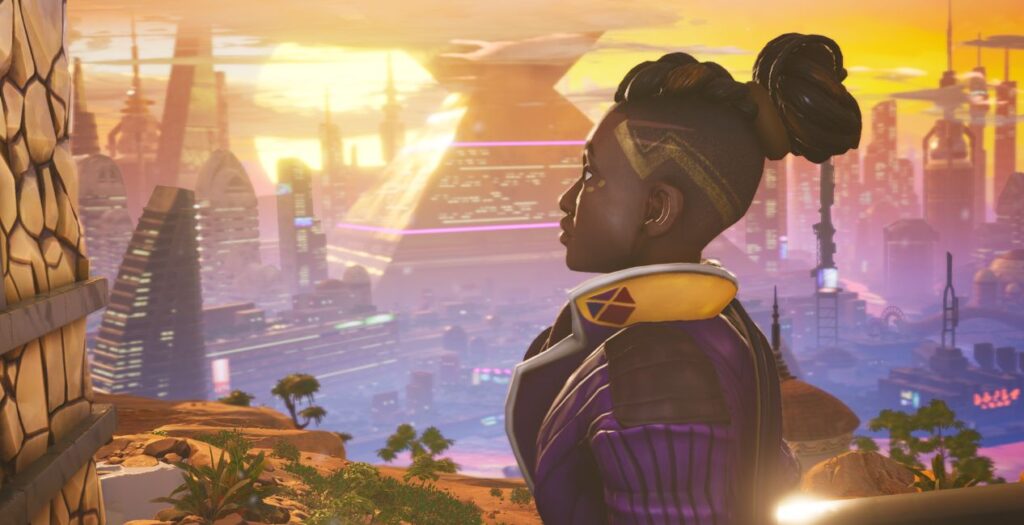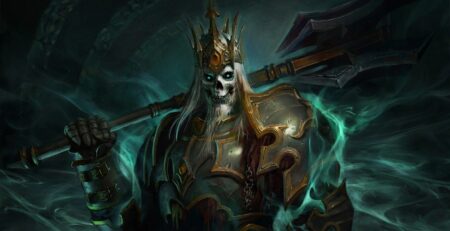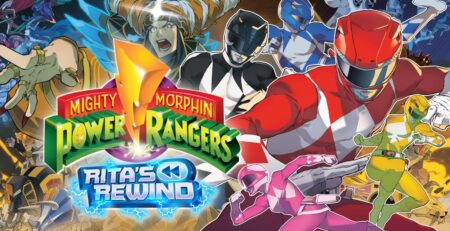This piece features spoilers for Tales of Kenzera: ZAU Act 4.
Developed by Surgent Studios, BAFTA-nominated actor and studio head Abubakar Salim has been open about the role his own grief played in building Tales of Kenzera: ZAU. A powerful Metroidvania about grief and acceptance, Zuberi begins reading the story his father wrote about a young shaman named Zau who lost his father. Each act of the story plays out in different zones in the game, where you play as Zau. For a 10-hour game, the vast majority of the time, you’re Zau, processing his loss. Then, Tales of Kenzera: ZAU Act 4 begins.
Tales of Kenzera: ZAU Act 4 is ambitious. While the end of each previous act of the game brings you to a battle and an escape, this one is simpler. It’s quieter and more introspective than anything that came before it. When you finish Act 3, Zuberi puts down Zau’s story. His father didn’t finish it, and we know he never will.
At this point, you’re allowed to walk throughout Zuberi’s house. You hear his memories as he interacts with photos and rooms. Baba becomes a more rounded person instead of just someone you lost. Everything builds up, and as Zuberi walks, you begin to map your own loss onto him.
Grief isn’t something you get over or move through. It’s something you live with. Once it’s buried itself in the foundation of who you are, you can not excise it. But that doesn’t mean you can’t form a new relationship with it. At the beginning of the game, Zau is angry and lost, in a way. He’s dedicated to bringing his Baba back and the clear narrative reality is that he never can. We know this as the player, and as the story progresses and Kalunga speaks more about Zau’s life, so does Zau.
But Tales of Kenzera: ZAU isn’t about getting over grief. It’s about how you move forward with it. It’s learning how to say goodbye, but still cherish your memories. Surgent Studios has crafted a story that isn’t about moving past something lost but rather honoring the dead with the life you choose to live after. The pivotal moment in Tales of Kenzera: ZAU Act 4 isn’t the final boss battle. It’s choosing to enter the room where your father’s casket is laid out for viewing.
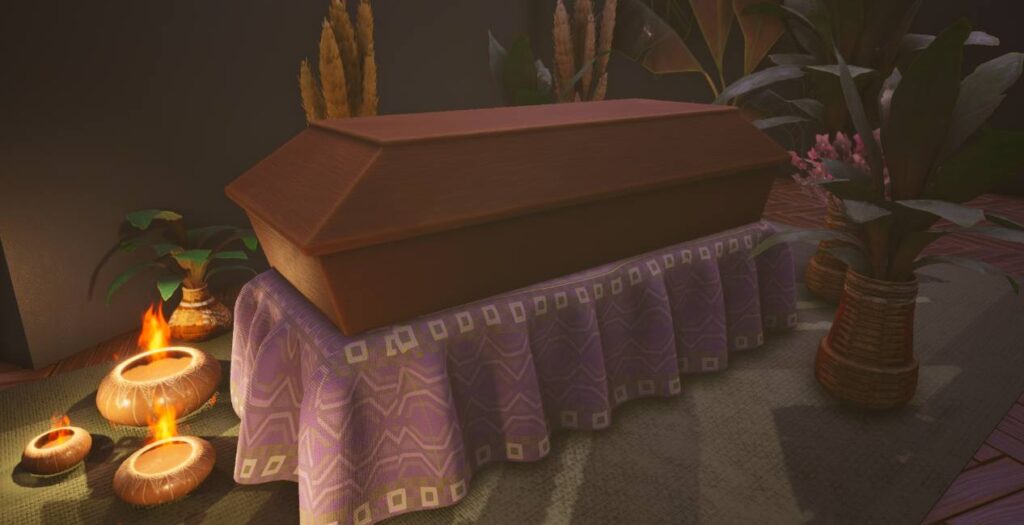
While part of me was jarred when we moved out of Act 3 and into Zuberi’s home, Tales of Kenzera Act 4 is a quiet juggernaut when it comes to video game endings. At the beginning of Tales of Kenzera: ZAU, Zuberi walks by the room where you’re father’s casket is and he refuses to enter it. But when you finish the three Metroidvania acts, you realize that your father hasn’t finished Zua’s story.
As Zuberi, you get the chance to explore his home. It helps build the game’s emotion. You walk through the house remembering the past, your Baba, and the memories that the walls hold. The art tells a story, and the toys in your room do, too. All of it builds to make the moment you enter the room hold even more weight.
When you do, the casket is the first thing you see. Surrounded by flowers, Zuberi’s mother is sitting near the window. The two of you talk about the past, but more importantly, about how you feel. Zuberi encapsulates Zau’s story here. The fear of the responsibility of have to carry yourself now that your father is gone. What do you do when the rock of your life is gone?
When my grandpa died, I didn’t talk. I sat there next to him, my family crying and making phone calls around me. But I was silent just up until the funeral. He was the strongest man I ever met and I watched him waste away with Alzheimer’s. He wasn’t the man I watched boxing in the backyard or the chess player who remained undefeated against my dad and tios. He was a man in a bed, who I didn’t recognize. His face was gaunt, his hair unkempt, and I was one of the lucky people at his side that he actually recognized.
I’ve told the story before and each time, it feels a little heavier. Because 10 years later, I’m still grieving. I still haven’t come to terms with the fact that the man I called dad before my dad came into the picture isn’t here. He won’t hug me or encourage me to fight. I won’t hear him laugh or yell. I have never grown out of my grief. A year ago, my friends got married, and at their reception, they played “Amor Eterno.”
I sat there, and my husband grabbed my hand, and I held in a wailing scream that was struggling to get out. And I silently cried. That was my grandparents’ song. One of my cousins sang it at my grandfather’s wake and has refused to sing since.
My pain is still there, and the loss is still fresh, but I did find a way to keep moving. Zau and Zuberi’s story isn’t about growing past grief either, it’s about living with it and making choices to keep a memory alive.
However, our heroes do something brave. They accept death. The world will never feel as easy as it was when their fathers were there. For Zuberi, the story he will write won’t be what his father would have. Zau will pick up his father’s work, but he will always question if he can fill the role of a shaman as well as his Baba did. They grow and pick up the next leg of their journeys not because they believe they can do it but because they trust their fathers and understand what it means to continue their work.
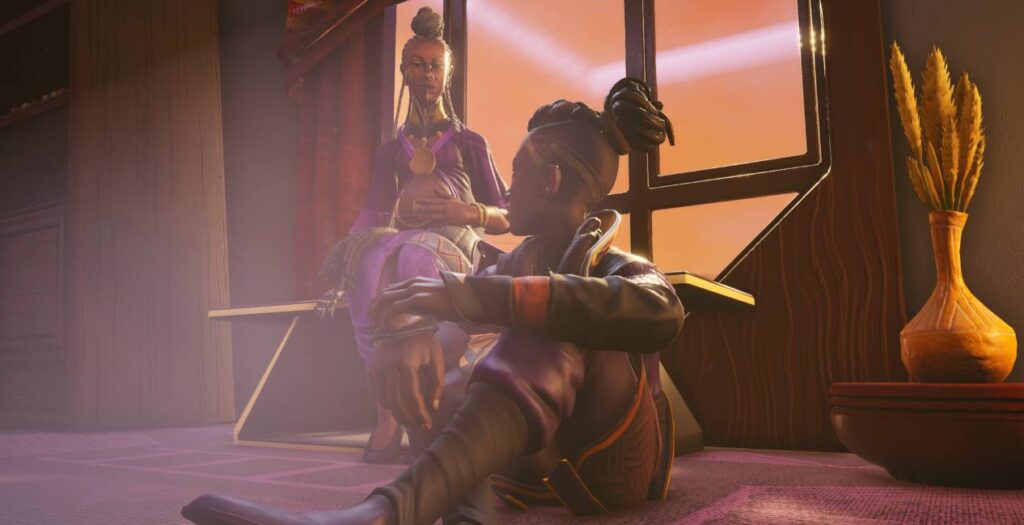
Tales of Kenzera: ZAU is, without a doubt, a triumph in storytelling, something I said in my review. But it holds this achievement because it doesn’t streamline loss. The game doesn’t smooth out the edges of mourning, and it doesn’t flatten it all into one succinct emotional story.
Instead, it embodies different stages. While I hesitate to say that it embodies the “five stages of grief” of traditional media, it does show the complex nature of mourning. You’re not always crying, and you’re not always angry. It’s something much more fluid, impacted by small moments throughout the rest of your life once that person is gone.
As Zuberi accepts his father’s death, he doesn’t lose his sadness. He makes the conscious choice to move forward with it, carrying his father and his grief in his heart. He picks up Zau’s story and he continues it. Zuberi picks up his father’s work and chooses to keep moving forward. It’s a powerful moment. Zuberi isn’t forced to ignore his pain nor forget that the future will be just a bit emptier. He willingly accepts the reality and takes on the role his father played.
This translates to Zau in the story. In the final moments of Tales of Kenzera: ZAU Act 4, Zau has one last moment of combat. This time, with his father. But in doing so, he proves that he’s ready to take over his duties as a Shaman. Zau is ready to move into the future, with his Baba’s memory close.
No matter how far I am from my grandfather’s death, even as I’ve lost more family, his memory is still close. The world is emptier without his smile or his jokes. But when life is hardest I remember everything that he went through in his 93 years on this planet. I remember what he overcame, the resiliency he wielded. Most importantly, I know where I fit into his legacy and how every day I choose to wake up and move forward is continuing his story. He lives in me now, and I carry him with me as I create my future.
Legends of Kenzera: ZAU is available on Xbox Series X|S, PlayStation 5, PC (via the EA app for Windows, Steam, and the Epic Games Store).

